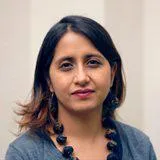The significant strength of the study lies in its approach [...] which essentially respected and valued the contribution of lived expert experience. It’s important for me to be involved in work like this because we need to stop this system failure and support people to thrive. We need to hold people to account, to up their game, so they stop killing people…. It is about saving lives.
Dr Jaqui Dyer MBE, Mental Health Equalities Adviser to NHS England and NHS Improvement and Director of Global Black Thrive
Please note: this event has passed
As part of Black History Month 2024 and to mark World Mental Health Day, you are invited to a special screening of A Life Less Safe, a film exploring the experiences of Black and other racially minoritised people living with severe mental and physical health conditions during the Covid-19 pandemic.
- Where: Brixton Ritzy cinema, London, SW2 1JG
- When: Thursday 10 October, 6-8pm
- Register for your free place
People with experience of severe mental health challenges have worked as peer researchers, alongside a team of researchers at King’s College London and Global Black Thrive, to carry out important research exploring whether COVID-19 exacerbated ethnic health inequalities in adults with a range of mental and long-term physical health conditions.
As part of the research, the team of academic and peer researchers, produced a powerful film, A Life Less Safe, providing personal insights into the real-life experiences of patients and carers during the pandemic. The film was made with BAFTA award-winning filmmakers DocHearts.
Join us for a special screening of A Life Less Safe
You are invited to a special screening of A Life Less Safe at the Brixton Ritzy cinema on Thursday 10 October, with patients, service users and the public, healthcare professionals, policymakers, mental health campaigners and local community organisations.
After the screening, there will be a Q&A and panel discussion featuring participants in the film, researchers, the film’s director and policymakers.
The event is a high-profile opportunity to highlight the stark inequalities facing racially minoritised people in mental health care and discuss the possible deeper causes and societal structures that result in unequal health outcomes, and what we can do about them.
The film aligns with the Patient and Carer Race Equality Framework (PCREF), a national initiative led by NHS England to address mental health inequalities impacting racially minoritised people.
About the film
A Life Less Safe was developed as part of a research project funded by the Health Foundation. The film highlights the stark disparities within the UK's health care system for minoritised ethnic groups with severe mental health conditions. These inequalities manifest through various experiences of racism across the system, such as poorer access to evidence-based treatments, higher rates of involuntary admissions to mental health units and services and lower life expectancy. The COVID-19 pandemic magnified these inequalities, with an alarming trend towards higher COVID-19 infections and mortality in minority ethnic groups.
The film features conversations with some of the academic and peer researchers with lived experience from the study. It also includes Dr Jaqui Dyer MBE, Mental Health Equalities Adviser to NHS England and NHS Improvement and Director of Global Black Thrive.
Film director
The film was directed by RTS Winning & BAFTA nominated producer Andy Mundy-Castle, DocHearts. Andy is also the director of the recent documentary White nanny, Black child, which explores the experiences of a group of Black Nigerian immigrants fostered by white British families in 1970s.
Research leads
The research was led by Jayati Das-Munshi, professor of social and psychiatric epidemiology King’s College London. Dr Josephine Ocloo, senior researcher and Health Foundation Improvement science fellow, King’s College London led the qualitative aspects of the research.
This event is being jointly supported by the ESRC Centre for Society and Mental Health at King's College London and NIHR ARC South London.
Event details
Ritzy Cinema and Cafe
Coldharbour Lane London SW2 1JG


